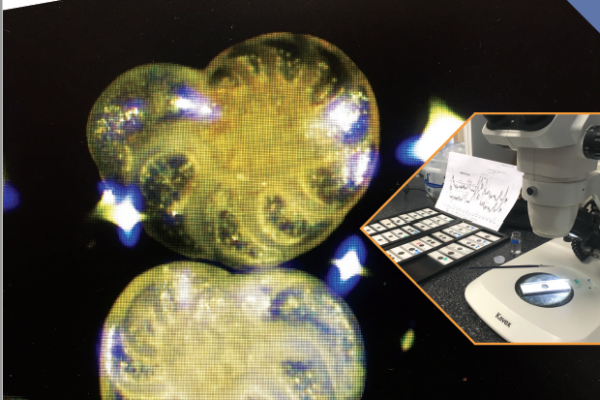Category: News

Annual Review 2023
Read More
 On Wednesday 12th January 2022, Haris Malik, PhD scholar* in Biomedical Sciences at the University of Glasgow received the Robertson Medal in Science, Engineering and Technology for academic year 2021-22. Due to the latest government guidance regarding Covid-19, this presentation was held virtually.
On Wednesday 12th January 2022, Haris Malik, PhD scholar* in Biomedical Sciences at the University of Glasgow received the Robertson Medal in Science, Engineering and Technology for academic year 2021-22. Due to the latest government guidance regarding Covid-19, this presentation was held virtually.
The silver medal is awarded each year to the Scholarship candidate judged to be the most outstanding for that year’ competition. The medal was introduced in 2003 to mark the contribution of the retiring Chairman of the Trust, Sir Lewis Robertson, who served the Trust for over 40 years.
About this year’s recipient
 Haris has always been fascinated with the natural world and understanding how things work; which fuelled a very inquisitive nature to his upbringing, he believes this instinctive quality is what has shaped his career route in science thus far. Haris grew up in Dennistoun in the east-end of Glasgow with a single mum, who was also pursuing a degree in order to provide for them both. During primary school, Haris was more drawn to analytical subjects such as Maths, Science and Computing. He achieved straight A’s throughout his time at school, which he put down to mostly hard endeavour; but also due to his passion for the subjects he was studying. Through secondary school, he developed a particular interest in infectious diseases – how something so small could have such large-scale consequences was something Haris was fascinated by. As such, all his university applications were centred around the field of microbiology.
Haris has always been fascinated with the natural world and understanding how things work; which fuelled a very inquisitive nature to his upbringing, he believes this instinctive quality is what has shaped his career route in science thus far. Haris grew up in Dennistoun in the east-end of Glasgow with a single mum, who was also pursuing a degree in order to provide for them both. During primary school, Haris was more drawn to analytical subjects such as Maths, Science and Computing. He achieved straight A’s throughout his time at school, which he put down to mostly hard endeavour; but also due to his passion for the subjects he was studying. Through secondary school, he developed a particular interest in infectious diseases – how something so small could have such large-scale consequences was something Haris was fascinated by. As such, all his university applications were centred around the field of microbiology.
During Haris’ Undergraduate course at the University of Glasgow, he began to specialise even further – finding a particular interest in viruses; from how they cause disease to how they spread throughout populations. he successfully applied for competitive placements in the Centre for Virus Research (a collaboration between the MRC and the University of Glasgow, forming the largest collection of virologists in the UK), carrying out summer projects (as well as his honours project) in different laboratories throughout the institute. Haris graduated with a first-class honour’s degree in Microbiology, specialising in virology, where he also finished as the top-ranked student on the course. Following on, he pursued a Master’s degree in Virology, again from University of Glasgow, where he was exposed to an array of topics and researchers in different sectors. He had always found epidemiology an interesting subject, however, exposure to the content in his Masters confirmed that it was the field where he wanted to take the next step in his career.
Haris researched different principal investigators within the university ecosystem, looking for people studying the epidemiology of emerging/re-emerging viruses. At this time the COVID-19 pandemic was still fresh and dominated every news network, and it had the whole world talking about how interactions with wildlife can lead to these dangerous viral spill over events. Haris found a particular researcher, his now supervisor Dr. Daniel Streicker, who was interested in being able to stop these emerging viruses at the source (wildlife), before they emerged in humans, which was a concept that Haris found captivating. Dr Streicker’s work focused on bats, which are a notoriously renowned reservoir for many human viruses. Haris found his work so intriguing and reached out to see if there may be any opportunities available for his to pursue in his lab. Over the next few months, they interacted and formulated a research proposal which addressed the interests of Daniel and Haris, which was accepted and funded by the Carnegie Trust. The project focuses on developing and testing a transmissible vampire bat-transmitted rabies vaccine, which would be able to self-disseminate and vaccine wild bats before the virus spills over into human populations. This project represents the first step of many in this exciting new potential pre-emptive control measure, where they would hope to extend their work to tackle other significant bat-borne zoonoses.
*Haris has a Henry Dryerre scholarship, which is funded by the Royal Society of Edinburgh.